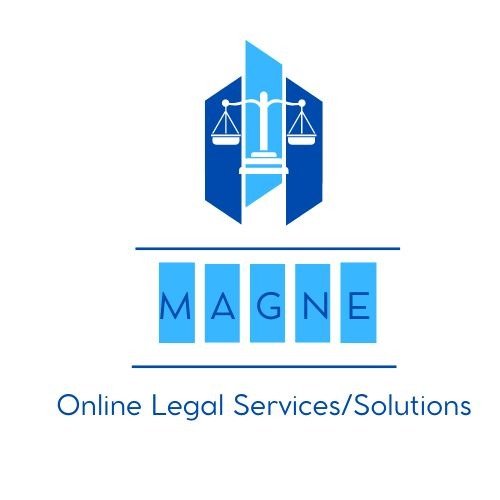Best Public-Private Partnerships (PPP) Lawyers in Azerbaijan
Share your needs with us, get contacted by law firms.
Free. Takes 2 min.
Or refine your search by selecting a city:
List of the best lawyers in Azerbaijan
About Public-Private Partnerships (PPP) Law in Azerbaijan
Public-Private Partnerships, commonly known as PPPs, are cooperative arrangements between government authorities and private sector entities to finance, construct, and operate projects that serve public interests. In Azerbaijan, PPPs focus on critical sectors such as infrastructure, healthcare, education, transportation, and utilities. The legal framework aims to attract private investment, share risks, and improve public service quality through transparent and mutually beneficial agreements.
PPPs in Azerbaijan have become increasingly important as the country seeks innovative ways to foster sustainable development and improve public infrastructure without relying solely on state budgets. As the interest in PPPs grows, understanding the legislative environment is crucial for both public and private entities considering participation in such projects.
Why You May Need a Lawyer
Navigating the legal complexities of PPPs in Azerbaijan can be challenging for both foreign and local participants. Engaging a legal professional experienced with PPPs is advisable for several key reasons:
- Project Structuring and Risk Allocation: Ensuring the PPP agreement adequately distributes risks, responsibilities, and rewards among partners.
- Bidding and Tender Process: Reviewing tender requirements, preparing submissions, and addressing compliance issues.
- Contract Negotiation: Drafting, reviewing, and negotiating project contracts to protect your interests and ensure alignment with Azerbaijani law.
- Permits and Licensing: Managing regulatory approvals, environmental permits, and operational licenses as required for the project.
- Dispute Resolution: Handling conflicts that may arise throughout the project, from execution delays to unforeseen circumstances.
- Foreign Investment and Taxation: Addressing international investment concerns, repatriation of profits, and understanding local tax obligations.
- Ensuring Regulatory Compliance: Keeping updated with evolving legislation and policies impacting PPP projects in Azerbaijan.
Local Laws Overview
The legal framework governing PPPs in Azerbaijan is anchored by specific legislation, alongside general civil, tax, investment, and procurement laws. The PPP Law of Azerbaijan, enacted in 2016, establishes guidelines for the initiation, structure, and implementation of PPP projects.
Key aspects include:
- Types of PPP Models Recognized: The legislation permits a range of partnership models, including concessions, build-operate-transfer (BOT), build-own-operate-transfer (BOOT), and various service contracts.
- Project Initiation and Approval: PPP projects may be initiated by either the public or private sector and require government approval, typically involving pre-feasibility studies and impact assessments.
- Bidding and Transparency: Competitive bidding procedures are mandatory to ensure fairness and transparency in the selection of private partners.
- Contractual Safeguards: Contracts outline roles, rights, performance standards, financial obligations, and dispute resolution mechanisms.
- Foreign Investor Participation: The law enables foreign companies to participate in PPPs, subject to investment and regulatory statutes.
- Dispute Resolution: Contracts may stipulate Azerbaijani courts or alternative dispute resolution like arbitration for resolving disagreements.
- State Support and Guarantees: The government may provide guarantees, subsidies, or incentives to attract private sector investment.
Understanding these legislative aspects is vital for mitigating risks and ensuring a PPP project's success in Azerbaijan.
Frequently Asked Questions
What exactly is a Public-Private Partnership (PPP)?
A PPP is a collaboration between government entities and private sector companies to fund, develop, and operate projects that benefit the public, typically major infrastructure or service-related initiatives.
Are PPPs legally recognized in Azerbaijan?
Yes, PPPs have a dedicated legal framework under Azerbaijan’s Law on Public-Private Partnerships, which regulates how such projects are initiated, structured, and executed.
Which sectors commonly use PPPs in Azerbaijan?
PPPs in Azerbaijan are most often found in infrastructure, transportation, healthcare, utilities, education, and urban development projects.
Can foreign companies participate in PPP projects?
Foreign investors are permitted to participate in PPPs, subject to compliance with Azerbaijani investment and regulatory laws.
How are PPP projects selected and approved?
Projects are usually selected through public procurement processes, requiring feasibility studies, government approval, and adherence to formal tendering rules.
What types of PPP contract models are available?
Common models include concession agreements, build-operate-transfer (BOT), build-own-operate-transfer (BOOT), and service contracts, each with specific obligations and durations.
What risks should PPP participants be aware of?
Participants need to consider legal, financial, regulatory, and operational risks, including changes in laws or policies, contract enforcement, and demand fluctuations.
How are disputes typically resolved in PPP contracts?
PPP contracts usually specify dispute resolution mechanisms, which can include litigation in Azerbaijani courts or arbitration in accordance with agreed rules and venues.
What government incentives exist for PPP projects?
The Azerbaijani government can offer guarantees, subsidies, financial support, or preferential terms to encourage private sector participation in vital projects.
Do PPP projects require environmental and social assessments?
Yes, projects often need environmental and social impact assessments to comply with national laws and protect public interests.
Additional Resources
Individuals and companies interested in PPPs in Azerbaijan can refer to various resources for guidance and support:
- Ministry of Economy of the Republic of Azerbaijan: The primary body overseeing economic policy, including regulation and promotion of PPP projects.
- Azerbaijan Investment Holding: Provides information and assistance to foreign and domestic investors, including PPP opportunities.
- State Agency for Public Service and Social Innovations (ASAN Service): Offers information on public services and transparency in government projects.
- Chamber of Commerce and Industry of the Republic of Azerbaijan: Supports local and foreign businesses involved in PPPs and investment projects.
- Professional Legal Associations: Consulting accredited law firms and professional bodies specializing in commercial and infrastructure law is highly recommended.
Next Steps
If you are considering involvement in a PPP project in Azerbaijan or facing legal questions related to ongoing partnerships, follow these practical steps:
- Assess Your Needs: Clearly define your goals, whether you are a prospective investor, business partner, or government entity.
- Research the Legal Framework: Familiarize yourself with Azerbaijani PPP laws and related regulations to understand your rights and obligations.
- Consult a Specialist Lawyer: Engage a qualified legal professional with experience in PPPs and local regulations to advise on your options and represent your interests.
- Prepare Documentation: Gather all necessary documents, including business credentials, project plans, and records of previous experience and compliance.
- Engage with Relevant Authorities: Reach out to regulatory bodies or agencies overseeing PPP projects for guidance and to ensure all approvals are in place.
- Stay Updated: Legislative and policy changes can impact PPPs, so remain informed about new rules or reforms.
Taking proactive legal steps will position you for success and minimize risks in any PPP initiative in Azerbaijan.
Lawzana helps you find the best lawyers and law firms in Azerbaijan through a curated and pre-screened list of qualified legal professionals. Our platform offers rankings and detailed profiles of attorneys and law firms, allowing you to compare based on practice areas, including Public-Private Partnerships (PPP), experience, and client feedback.
Each profile includes a description of the firm's areas of practice, client reviews, team members and partners, year of establishment, spoken languages, office locations, contact information, social media presence, and any published articles or resources. Most firms on our platform speak English and are experienced in both local and international legal matters.
Get a quote from top-rated law firms in Azerbaijan — quickly, securely, and without unnecessary hassle.
Disclaimer:
The information provided on this page is for general informational purposes only and does not constitute legal advice. While we strive to ensure the accuracy and relevance of the content, legal information may change over time, and interpretations of the law can vary. You should always consult with a qualified legal professional for advice specific to your situation.
We disclaim all liability for actions taken or not taken based on the content of this page. If you believe any information is incorrect or outdated, please contact us, and we will review and update it where appropriate.
Browse public-private partnerships (ppp) law firms by city in Azerbaijan
Refine your search by selecting a city.









